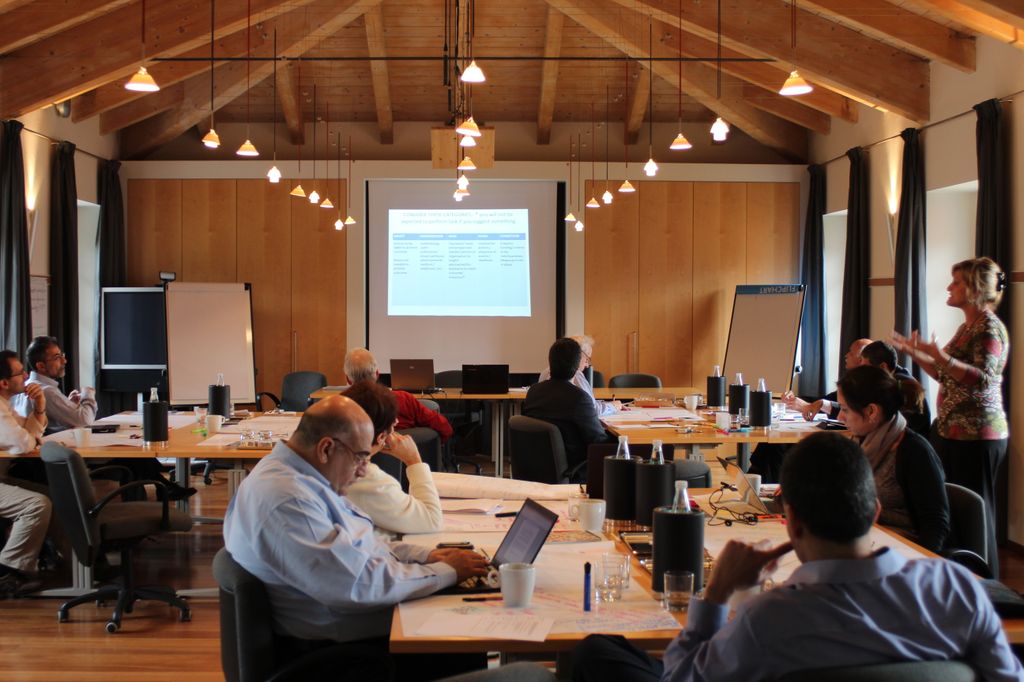Health research in the Arab world can benefit from experiences in Africa and Latin America…
By Andrea Rinaldi
Freelance journalist, SciDev.Net
Future work needed to develop efficient health research systems in Arab countries can find a good starting point in previous experiences from other regions of the world. This is the main take-home message of the talk by Francisco Becerra, COHRED, staged today at the Boosting research for health in the new Arab world meeting in Bellagio, north Italy.
“COHRED aims to make an essential contribution to improve health, equity and development around the world. While there are many ways to do so, we focus on research and innovation – by and for low- and middle income-countries and populations,” said Becerra. “Our focus is on the systems needed for research and innovation for health. We believe that strong systems produce more and better research and innovation, with a greater relevance to the country and its population.”
Becerra presented COHRED work in Africa and Latin America, often performed in close collaboration with key regional partners, such as the New Partnership for African Development Agency (NEPAD) and the Pan-American Health Organisation (PAHO/WHO). In Latin America and the Caribbean, COHRED has developed regional and country based activities. Most notable is the work with Paraguay, which led to a presidential decree on research and innovation for health; and the collaboration with Uruguay on the establishment of a financial mechanism for research for health.
“A key aspect of COHRED’s work is to facilitate exchange and interaction among countries in a region. We strongly believe in this exchange with peers to stimulate research and innovation development,” Becerra said. “Regional meetings were therefore organised in Latin America in the recent past, and a knowledge exchange workshop for the African countries was organised in 2012 in Tanzania.”
Each country has its own peculiarities and needs specifically tailored solutions, experience shows. Also, countries are called to invest in their own systems, and to strengthen research and innovation capacity. If this does not happen and countries themselves are not interested, there is little that can be done through external aid.
“What is happening in the Arab world? Is there a similar interest in research and innovation and an assertiveness to take this development into own hands? What are the key political and regional players, and how can organisations such as COHRED make a meaningful contribution to research and innovation in the region?” asked Becerra. These are the questions the Bellagio meeting and subsequent discussions will aim to answer.
This blog post is part of our coverage of Boosting Research for Health in the New Arab World meeting which takes place 26 February – 1 March 2013, in Bellagio, Italy. To read further news and analysis please visit ourwebsite.
Source: SciDev.Net

